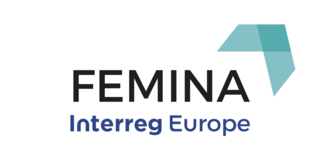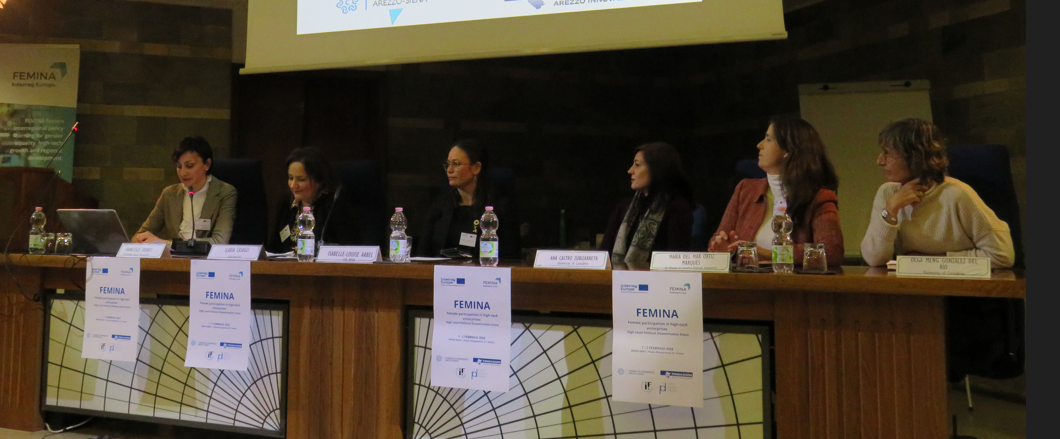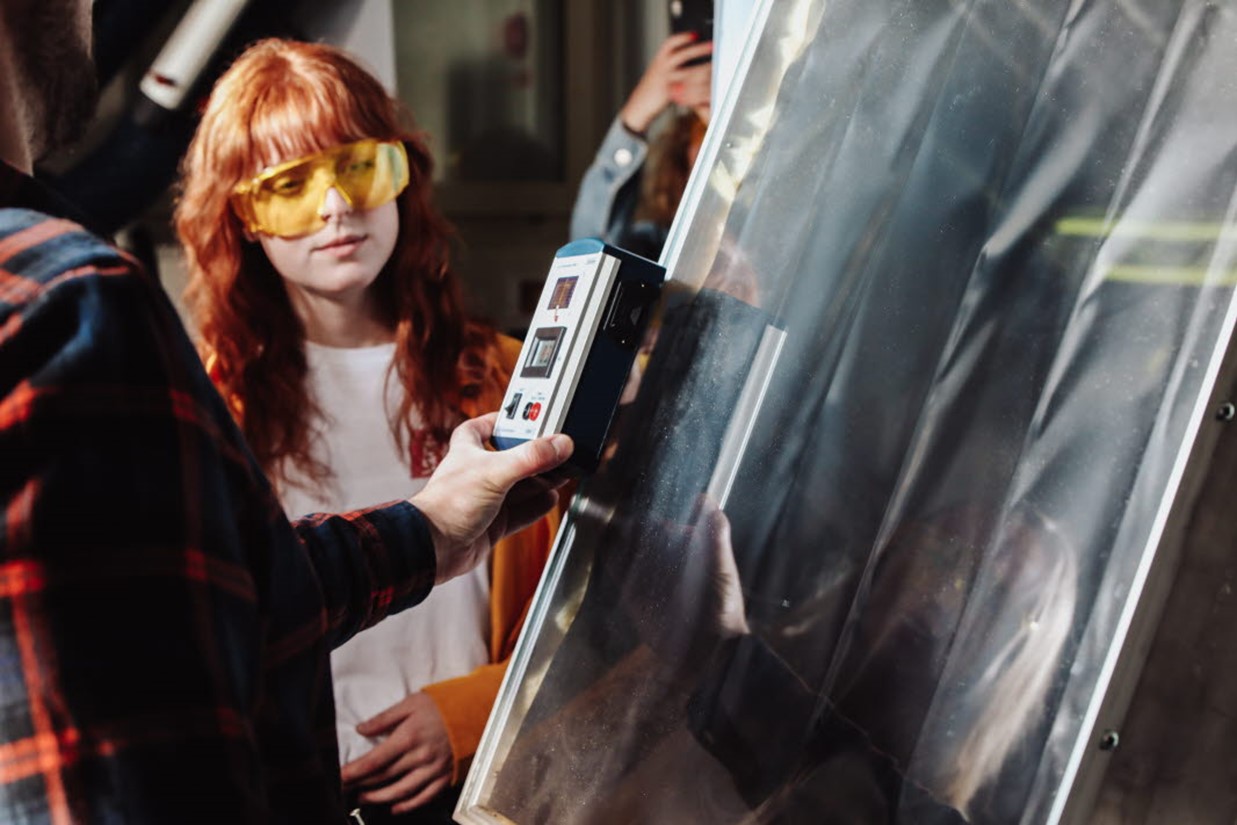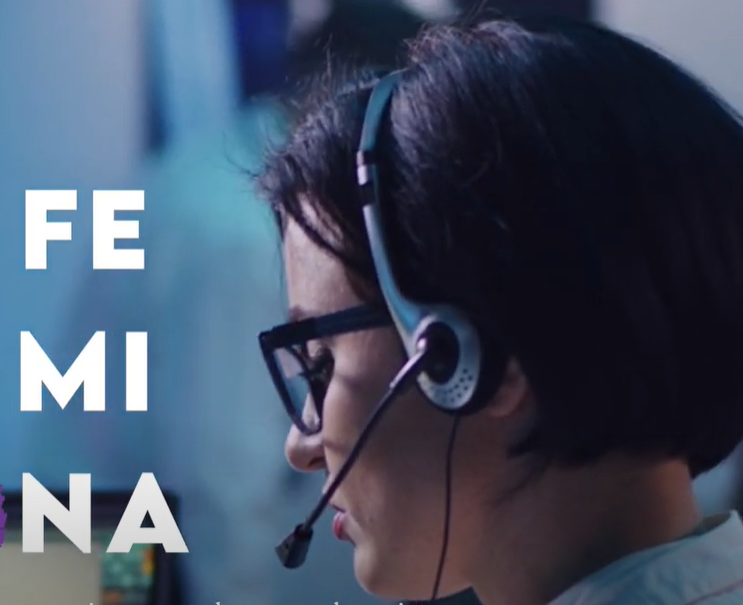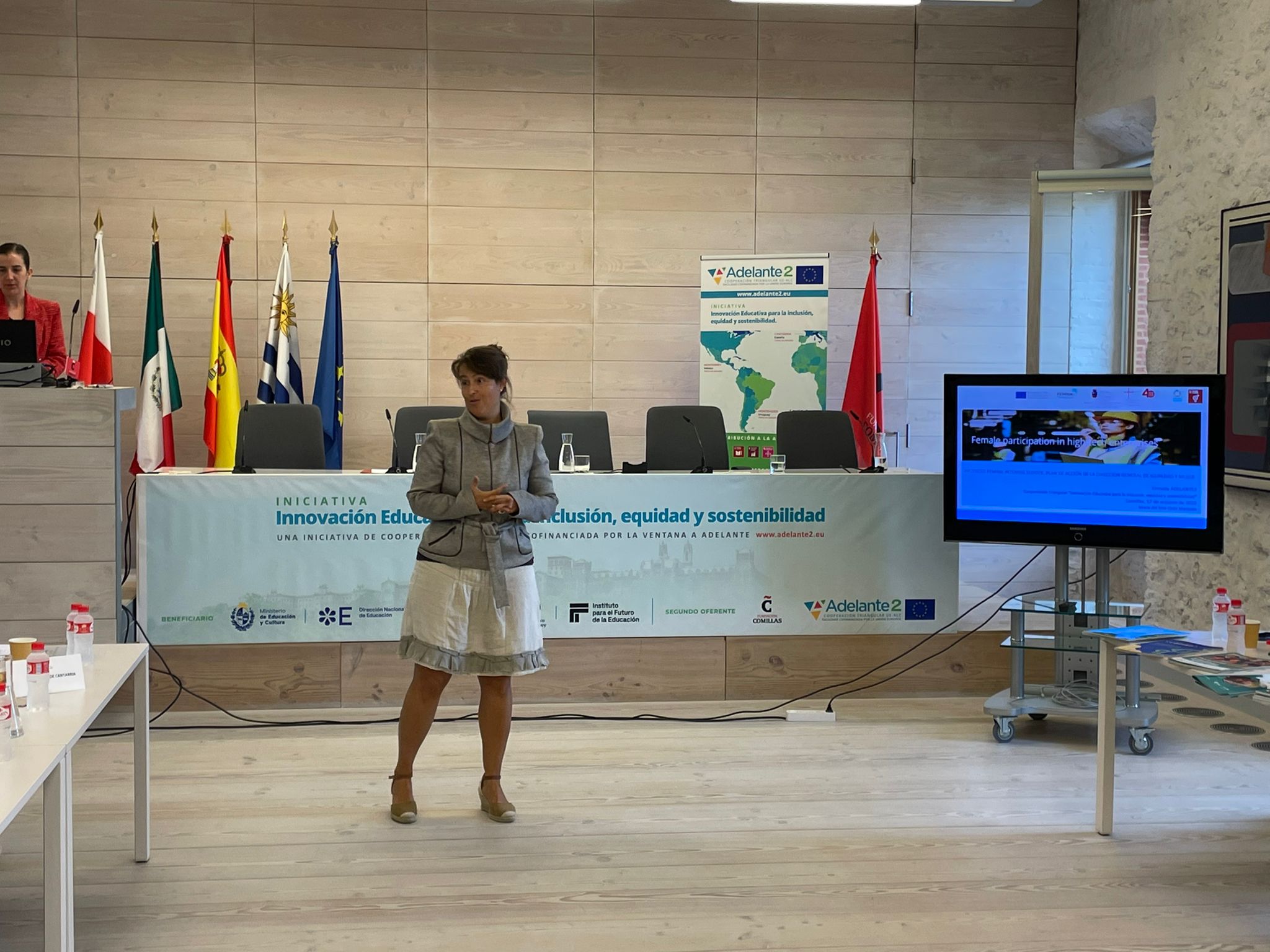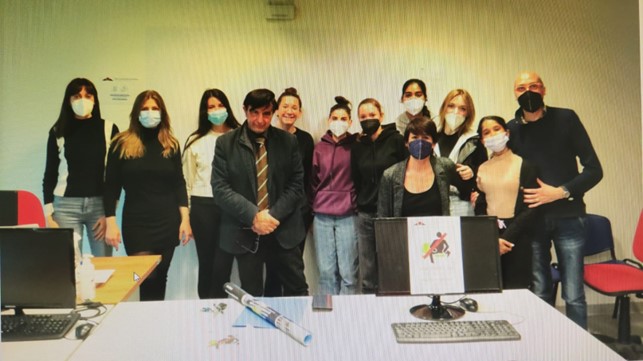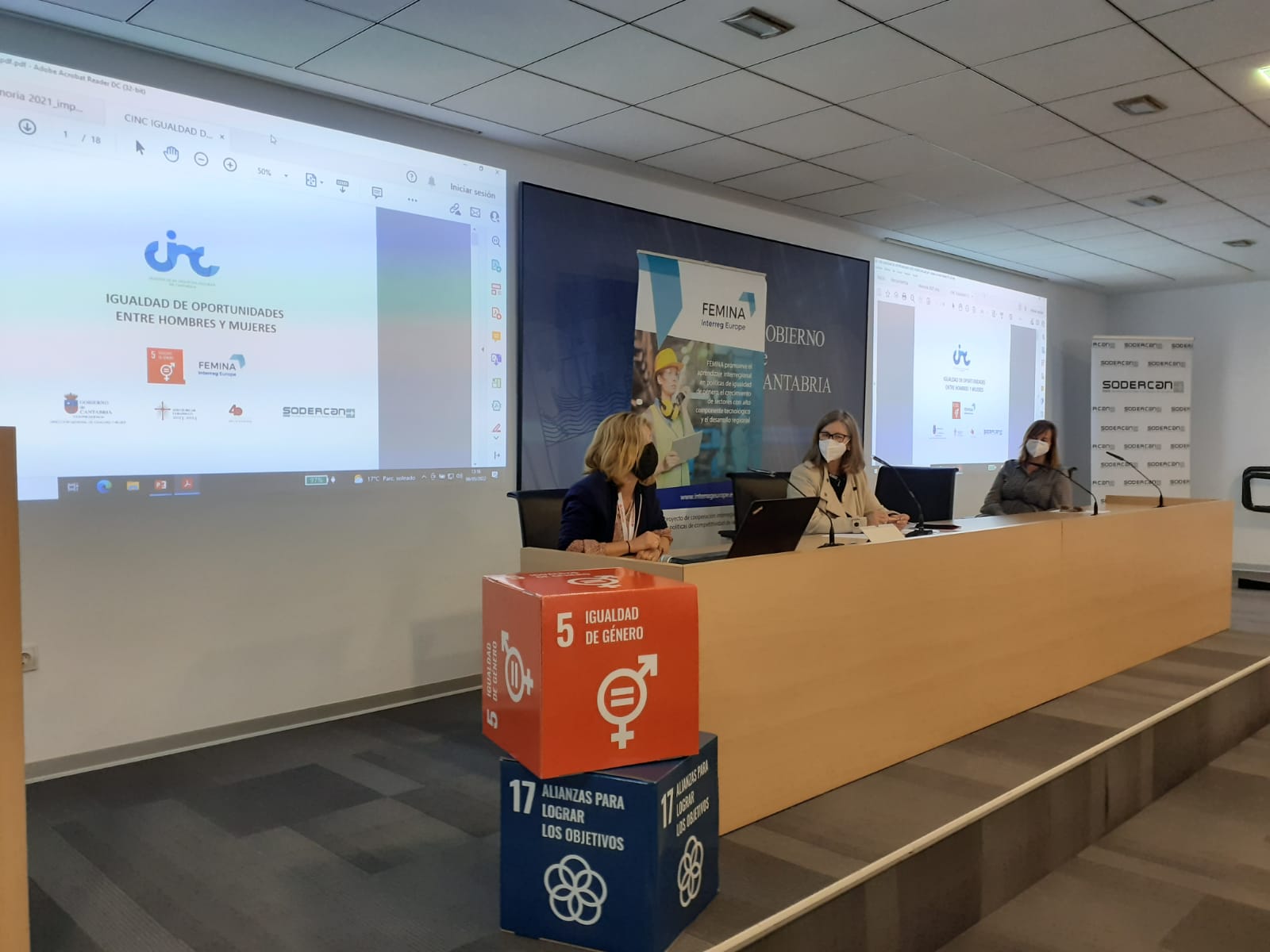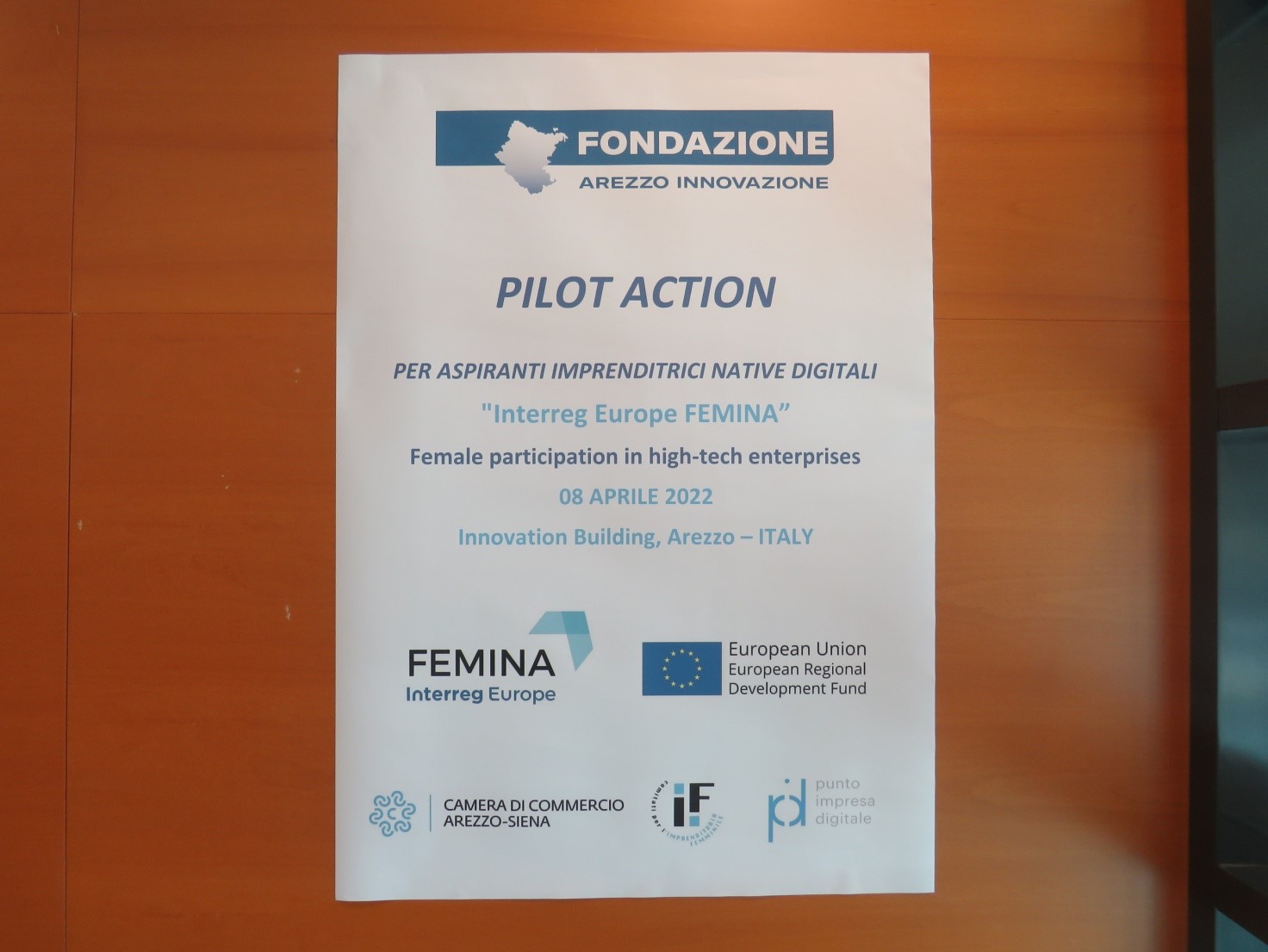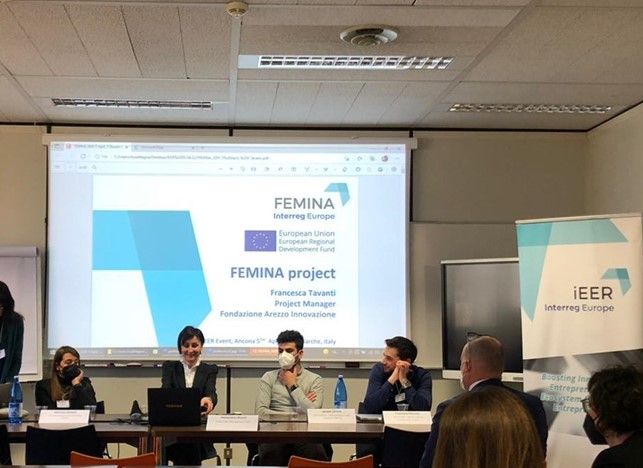Introduction
The 1° meeting Local Stakeholder Group has been organized with a small and representative group of stakeholders before the first Convention of the FEMINA project in order to match ideas and produce a first reflection on the document "FEMINA- Understanding Barriers and Enablers Input Template".
Summary
After a brief presentation of the project, the agenda and the actions to be done by Sara Bonci, the group composed of important figures on the female entrepreneurship scenario of Arezzo, such as Ivana Ciabatti from Italprezioni, Barbara Bertocci from Monnalisa and Lucia Milighetti from Adabra, has been confronted on various topics and in particular on 3 main axes:
• barriers to the female entrepreneurship
• barriers to access to work and career progression on SMEs and high technology
• lack of attention to the gender dimension on the innovation
Starting from the identification of the barriers that a woman faces when entering the prospects of entrepreneurship, the first and the most evident is the one that follows the parenthood.
It is undoubted that becoming a mother is a "special and unique" life moment for a woman, but also so demanding that undoubtedly it takes a lot of time from work and it has consequences, such as the difficult readjustment after the absence period, because of the progress of the company or the complex reconciliation between family and work. Regarding this, a first idea proposed by the testimonials was to create company kindergartens, so to break down the problem of the division between the time at home and time at work and to bring well-being and serenity both to the mum and to the baby and as a consequence to improve the performance's worker.
Barbara Berocci, president and creative director of Monnalisa S.p.A., said she tried to give life to this project 20 years ago but without success due to the bureaucracy and the numerous norms imposed by law in order to have such facility inside the company. Ivana Ciabatti from Italprezioni, one of the main operator in refining, trading, and commerce of precious metals, ingots and gold coins for investments around the world, stated she doesn't want to give up this project, and in the meantime she's working on a wider project, an ethic code for her company and employees, wanting to achieve, among other things, the creation of a kindergartens, a company canteen, a gym and relax areas.
Regarding this Lucia Milighetti, who has an office also in Milan, brings her own experience and mentions some case histories of some companies which created those kind of structures for their employees, such as Calzedonia, and she adds that a solution to facilitate the reconciliation between work and family time could be the telecommute, which she widely uses in her company.
Ivana Ciabatti considers it crucial to support female jobs because women represent an unexpressed potential in our own economy in terms of GDP level. She adds that from her personal experience one of the most common barriers is the lack of confidence in their own abilities, a social matter that probably comes from a national rooted culture for which a woman will never be seen as a man. Lucia, regarding this aspect, adds that the difficulty for women to establish themselves is higher in some sectors historically male prerogative, for example, architecture and finance.
A woman, in order to work and establish herself in these sectors, should be doubly prepared in comparison with a man and she should be determined, organized and have very strong and clear ideas.
In the meantime, on these aspects new generations act differently, in particular women under 30, in which differences are less perceived both in school paths and in job ones.
The entire group stated that maternity is, among the others, the most disadvantageous issue both for the worker and for the enterprise. Them, as company owners, would try to empower the worker so to let her consider the workplace as a common good and not as a stranger one. In this case, too, the under 30 generations are more grateful for their jobs, they don't take for granted a permanent contract and when they achieve it they are more thankful.
In order to increase the sense of belonging to the company, every enterprise does team building activities, but they are also opened and interested in other European experiences. Lucia Milighetti brings her experience in Ireland where great digital companies such as Google or Linkedin each week organize parties to create groups and make pleasant and harmonious the workplace.
A soft skill identified by the testimonials which have a double role is the insight, crucial in some work dynamics in which paying attention to the detail is important but also deleterious if used in comparison with other women because it could cause conflict and competition among them.
